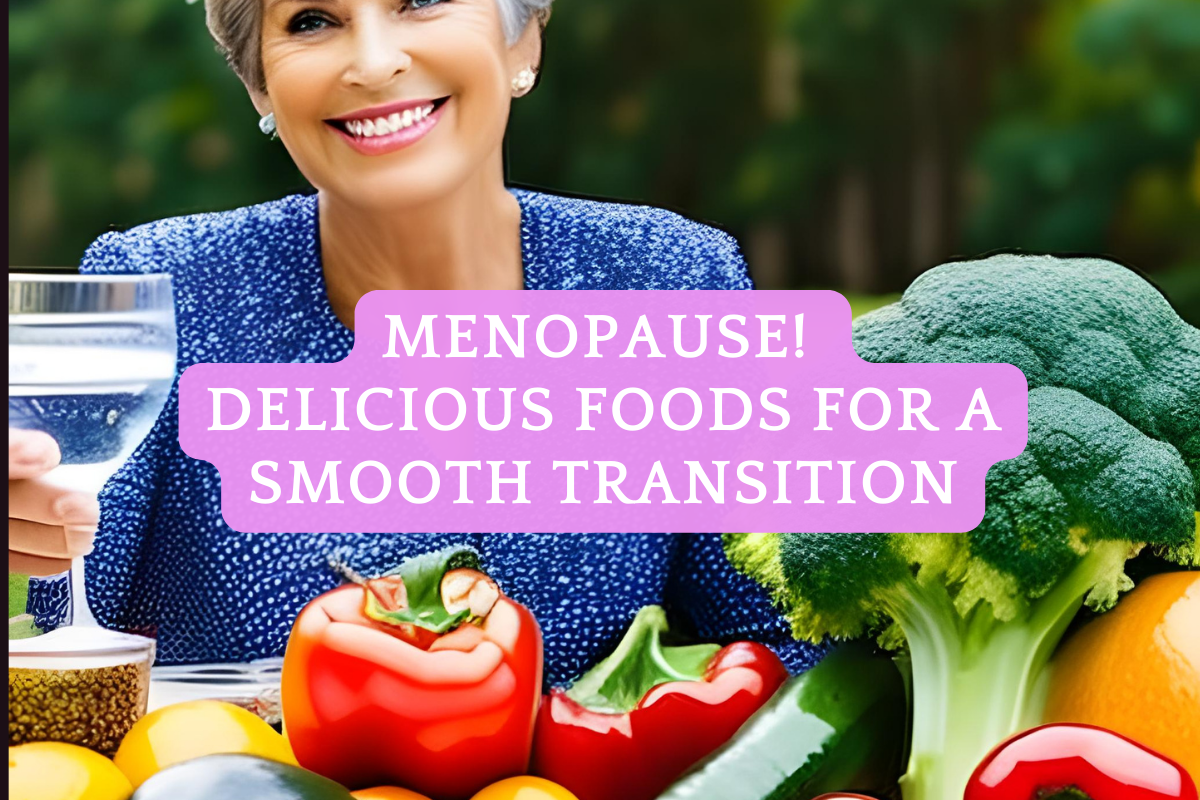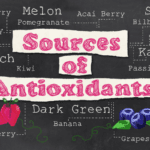Menopause
Menopause, an inevitable phase in every woman’s life, brings about numerous changes, both physical and emotional. While it may come with its fair share of challenges, the good news is that a well-balanced diet can make a significant difference in managing menopause symptoms and promoting overall well-being. So, let’s embark on a flavorful journey and explore the best foods to support you during this transitional period. From maintaining bone health to alleviating hot flashes, these tasty treats have got you covered!
Here are 8 of the Best Foods:

1 – Calcium-Rich Foods: Strong Bones, Happy You
As estrogen levels decline during menopause, maintaining bone health becomes a top priority. Calcium-rich foods are essential for strong bones and reducing the risk of osteoporosis. Alongside dairy products like milk, yogurt, and cheese, consider incorporating other sources of calcium into your diet. Leafy greens such as kale, collard greens, and spinach are not only rich in calcium but also provide an array of vitamins and minerals. Additionally, fortified plant-based milk alternatives like almond milk and soy milk can be excellent choices for those with lactose intolerance or who prefer non-dairy options.
2 – Omega-3 Fatty Acids: Your Mood’s Best Friend
Hormonal fluctuations during menopause can sometimes lead to mood swings and feelings of anxiety or depression. Omega-3 fatty acids are known for their mood-boosting properties. Along with fatty fish like salmon, mackerel, and trout, other sources of omega-3s include flaxseeds, chia seeds, walnuts, and hemp seeds. These can be easily incorporated into your diet by sprinkling them over yogurt or oatmeal, adding them to smoothies, or using them as a topping for salads.
3 – Phytoestrogen-Rich Foods: The Natural Balancers
Phytoestrogens, found in certain plant-based foods, can help balance hormone levels and alleviate some menopausal symptoms. Soy-based products like tofu, tempeh, and edamame are well-known sources of phytoestrogens. Other options include flaxseeds, sesame seeds, lentils, and whole grains like oats and barley. By adding these foods to your meals, you can potentially reduce hot flashes and support hormonal equilibrium.
4 – Colorful Fruits and Vegetables: Antioxidant Powerhouses
Eating a variety of colorful fruits and vegetables provides a wide range of essential vitamins, minerals, and antioxidants, which are crucial for overall health and well-being during menopause. Berries such as blueberries, strawberries, and raspberries are packed with antioxidants and can be enjoyed as a snack or added to smoothies and salads. Citrus fruits like oranges and grapefruits provide vitamin C, which aids in collagen production and supports skin health. Leafy greens, such as spinach and kale, are rich in vitamins A, C, and K, as well as minerals like iron and calcium. Vibrantly colored vegetables like bell peppers, sweet potatoes, and tomatoes also offer a wide array of nutrients. Aim to fill half of your plate with a variety of fruits and vegetables at every meal.
5 – Hydration: Sip Your Way to Comfort
Proper hydration is essential for managing menopausal symptoms, particularly hot flashes and night sweats. Drinking an adequate amount of water throughout the day helps regulate body temperature and promotes overall well-being. Aim to drink at least eight glasses (about 64 ounces) of water daily. If plain water feels monotonous, infuse it with refreshing flavors like lemon, cucumber, or mint. Herbal teas, such as chamomile or peppermint, not only provide hydration but also have calming properties that can soothe and relax you. Be mindful of caffeine and alcohol consumption, as they can contribute to dehydration.
6 – Whole Grains: Fueling Your Energy
Menopause can sometimes bring about fatigue and a decrease in energy levels. Including whole grains in your diet can provide a steady supply of energy and help combat these feelings of sluggishness. Whole grains such as quinoa, brown rice, whole wheat bread, and oats are packed with complex carbohydrates, fiber, and B vitamins. These nutrients not only provide sustained energy but also support digestion and help regulate blood sugar levels. Start your day with a bowl of oatmeal topped with berries and nuts for a nourishing and energizing breakfast. Incorporate whole grain options in your meals by swapping refined grains for whole grain versions in dishes like stir-fries, salads, and grain bowls.
7 – Lean Proteins: Strength for the Journey
Protein is essential for maintaining muscle mass, supporting tissue repair, and providing a sense of satiety. During menopause, when hormonal changes can impact your metabolism and body composition, including lean sources of protein in your diet becomes even more important. Opt for lean meats like chicken and turkey, fish such as salmon and trout, eggs, and plant-based protein sources like beans, lentils, tofu, and tempeh. These options provide high-quality protein with additional benefits such as omega-3 fatty acids and fiber. Ensure each meal contains a balanced portion of protein to support your overall strength, vitality, and hormone balance.
8 – Healthy Fats: Nurturing Your Body
Contrary to popular belief, not all fats are bad for you. In fact, healthy fats play a vital role in supporting hormonal balance, brain health, and overall well-being during menopause. Incorporate sources of monounsaturated and polyunsaturated fats into your diet. Avocados, nuts (such as almonds and walnuts), seeds (like chia seeds and flaxseeds), and olive oil are excellent choices. These healthy fats can help reduce inflammation, support heart health, and contribute to radiant skin and hair. Enjoy a handful of nuts as a snack, drizzle olive oil over salads and roasted vegetables, or add avocado slices to your sandwiches or salads. These small additions can make a big difference in nourishing your body during menopause.
Remember, these food choices are not meant to be restrictive, but rather to provide a foundation for a well-rounded diet during menopause. By incorporating these nutritious foods into your meals, you can support your body through this transitional period and embrace the journey with vitality and well-being.
Menopause: Life Transformation Phase
Embracing menopause with a positive mindset and adopting a wholesome diet can make all the difference in supporting your well-being during this transformative phase. By incorporating these expanded categories of nutritious foods into your daily routine, you can navigate through menopause with vitality, balance, and a renewed sense of self. Remember, each meal is an opportunity to nourish your body and honor this journey of change. So, experiment with flavors, listen to your body’s needs, and savor the joys of nourishing yourself through menopause. Here’s to embracing this chapter of life with grace, good food, and vibrant health!



